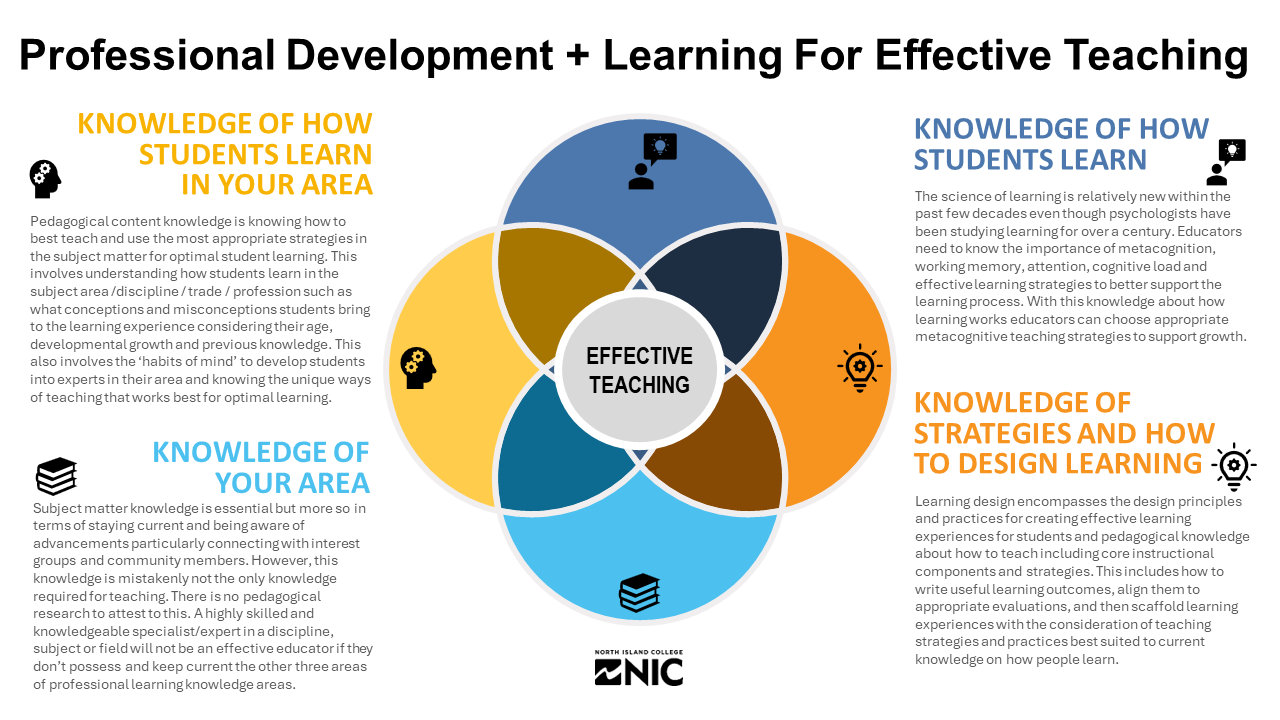Instructors require four kinds of knowledge to be an effective educator.
 College and university instructors most often come to the position without strengths in all four knowledge areas. When instructors are building their professional development plan they should consider a balanced approach of all four components and a variety of formats such as conferences, workshops, symposia, book reading, peer observation, portfolio development, and scholarly activities such as action research and student engaged projects.
College and university instructors most often come to the position without strengths in all four knowledge areas. When instructors are building their professional development plan they should consider a balanced approach of all four components and a variety of formats such as conferences, workshops, symposia, book reading, peer observation, portfolio development, and scholarly activities such as action research and student engaged projects.
A handy Venn diagram has been developed to help outline these four kinds of knowledge. See below for image and PDF of image.
Most often instructors tend to focus on the bottom left area (knowledge of area – subject, discipline, trade etc) to ensure they are current and teaching the most appropriate content. But the top two areas are equally important in terms of having knowledge about how students learn the discipline/subject area. Instructors need to be acutely aware of what prior knowledge students often bring to the classroom and what common misconceptions and conceptions they hold about the topic or discipline to be studied. The science of learning (how learning and thinking works) has a significant impact on understanding learners and their learning journey. When educators have a broader understanding of how the brain works along with memory, cognitive load and attention, they can better design a course and respond to student needs.
Learning design is another core knowledge piece that often isn’t always picked up on the job. Learning design is the skill set about how to ‘build the learning house’ (aka the course) from foundation to the roof and all that is in between. This is more than just following a textbook set of chapters and slide decks. Learning design starts with good learning outcomes and then creating an aligned course with linked application activities and demonstrations of learning. Learning design ties all the pieces together with the foundational knowledge of teaching and learning practices and pedagogies and then links all courses under the program or credential area for an holistic learning experience.
Credit: Based on Stephen Chew’s 2023 article, The Types of Knowledge for Effective Teaching (Research Gate Link) this framework includes knowledge of learning design as a core area for effective teaching.
Diagram: Liesel Knaack, 2023 | Handout of Image: PDF Version
